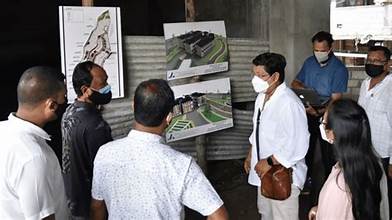Meghalaya’s Teachers Deserve Respect and Fair Pay
The Supreme Court of India has issued a landmark ruling highlighting the urgent need to treat teachers with dignity and fair remuneration. The court emphasized that paying Assistant Professors only ₹30,000 per month undermines the nation’s commitment to knowledge, education, and intellectual growth. This ruling is particularly relevant for Meghalaya, where exploitative hiring practices in government-aided colleges are widespread.
Systemic Exploitation in Meghalaya
Many colleges in Meghalaya surrender permanent teaching posts approved by the government, only to replace them with contractual teachers earning a meager ₹30,000 monthly. These institutions still demand UGC qualifications like NET/SLET and PhDs but ignore mandated pay scales, a clear violation of professional equity.
Guest lecturers, highly qualified and experienced, are paid only ₹500 per class, less than Meghalaya’s legal minimum wage for skilled labor. This practice devalues teaching and undermines the quality of education. Treating educators as disposable labor erodes academic dignity and hampers students’ learning experiences.
Consequences of Underpaying Teachers
-
Low motivation and morale among educators
-
Reduced focus on research, innovation, and curriculum development
-
Students receive substandard education from overworked, underpaid teachers
-
Creation of a two-tier education system, with contractual staff delivering the same work as permanent staff without benefits or security
Supreme Court Directives
The court has directed the Meghalaya government and affiliated colleges to:
-
Pay contractual Assistant Professors at least the minimum scale of regular pay, with arrears at 8% for the past three years
-
Conduct a comprehensive audit of surrendered posts and contractual replacements
-
Revise guest lecturer pay to a minimum of ₹2,000 per class
-
Consider regularization of long-serving contractual faculty
Meghalaya must act immediately to honor these directives and restore teachers’ dignity, financial security, and professional respect.
Meghalaya’s First State University – A Milestone for Education
Captain Williamson Sangma State University (CWSSU) has welcomed its first batch of 274 students in Tura and Shillong, marking a historic moment for Meghalaya. Established in 2011 and realized after years of effort, CWSSU expands access to higher education across the state.
Key Features of CWSSU
-
Bypasses CUET to ensure no deserving student is left out
-
Offers diverse postgraduate programs in Garo, Khasi, Environmental Science, Political Science, and Social Work
-
Combines local culture with global relevance
-
Encourages research, indigenous knowledge conservation, and employment opportunities
CWSSU is not just an institution; it is a beacon of knowledge, a foundation for future leaders, and a catalyst for socio-economic transformation. The government’s vision in establishing CWSSU deserves commendation, but its success depends on strong infrastructure, qualified faculty, transparent governance, and visionary policies.
This university represents a new chapter in Meghalaya’s educational journey, carrying the hopes and aspirations of its youth.











